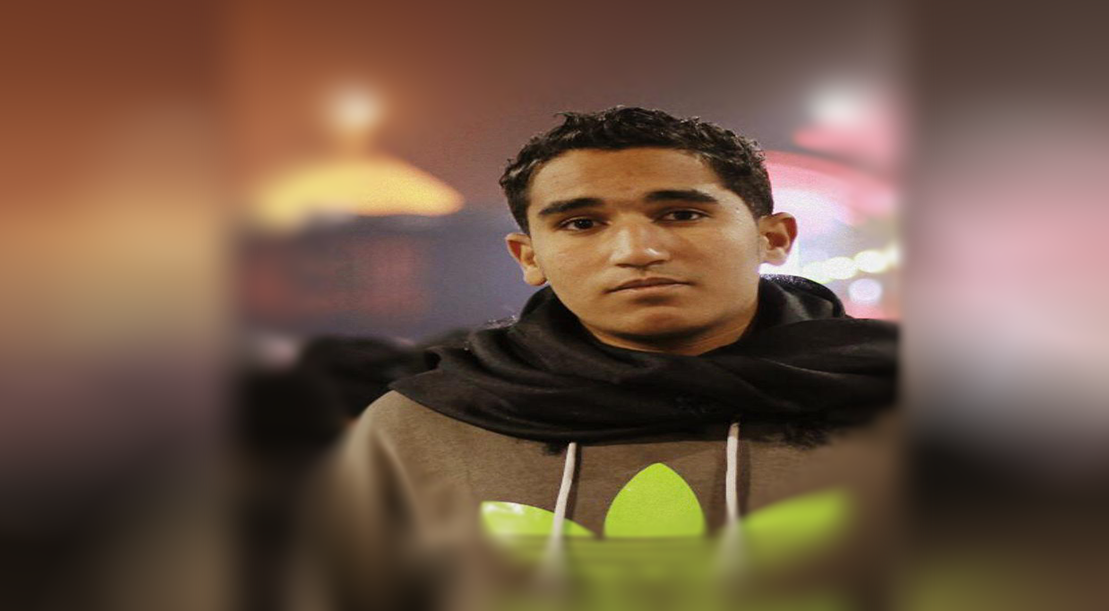Mujtaba Sadeq Isa was only a 19-year-old student when he was arrested upon his return from Iraq. Mujtaba’s due process and fair trial rights were violated, and he was tortured into providing a confession. Mujtaba contracted the COVID-19 virus after its breakout in Jau Prison, where he is currently held.
On 15 November 2017, Mujtaba was arrested without a warrant at the Bahrain International Airport upon his return from Iraq. A friend who witnessed the arrest informed his family of the arrest on the evening of the same day. Mujtaba was only allowed to meet his family a week after his arrest. In the absence of legal representation, Mujtaba was interrogated for three days. During his interrogation, Mujtaba was tortured and confessed to the charge of illegal assembly as a result.
Mujtaba was convicted in two cases of assaulting a policeman and planting explosives. The charges directed against him also involved 1) deliberate destruction 2) illegal assembly and rioting 3) possession and use of flammable and explosive devices 4) criminal arson 5) possession of a device resembling an explosive. Mujtaba, who was denied access to his attorney, was sentenced to a total of 12 years in prison, which was upheld in the Appeals Court.
In prison, Mujtaba was subjected to several human rights violations and punishments. Mujtaba was transferred to solitary confinement for allegedly raising his voice at an officer after the officer had forcibly closed an opening Mujtaba was looking through. He was then moved to a cell where he was the only political prisoner and was also deprived of calls and visits. In addition, Mujtaba suffers from alopecia areata. Despite not being taken to the medical appointment advised by his doctor to carry out a blood test, the website of the Health Ministry showed that he did attend the appointment. Mujtaba was later only given a topical cream to be applied externally.
Mujtaba’s family had already filed complaints to the Ombudsman and the National Institute for Human Rights regarding his arrest, the conditions in prison, and his medical treatment. Although the Ombudsman did follow up on some of the cases, there was no response from the NIHR.
After the COVID-19 outbreak in Jau Prison, Mujtaba contracted the virus and was separated from his cellmates. The Ministry of Health only contacted his family to inform them he had tested positive, and to ask for the names of people he had been in contact with, not knowing he is a prisoner. Five days later, Mujtaba called his family to inform them that he was in good health and that he experienced symptoms including the loss of smell and taste. He also informed them that the prison administration brought him sanitary products and that his oxygen levels were being taken three times a day. However, it seemed like he was unable to speak freely during that call. After being tested twice on 28 and 31 March 2021, Mujtaba tested negative.
The practices of Bahrain against Mujtaba from his arrest to his treatment in prison constitute violations of International Conventions which Bahrain is a party to, such as the Convention against Torture and Other Cruel Inhuman or Degrading Treatment or Punishment, and the International Covenant in Civil and Political Rights. Therefore, ADHRB calls on Bahrain to uphold its obligations by dropping the unfounded charges against Mujtaba and hold a fair retrial that meets international standards. Further, ADHRB also calls on Bahrain to investigate the allegations of medical negligence made against Mujtaba and to provide him with the appropriate medical treatment, especially in light of the COVID-19 pandemic.





